
September 15
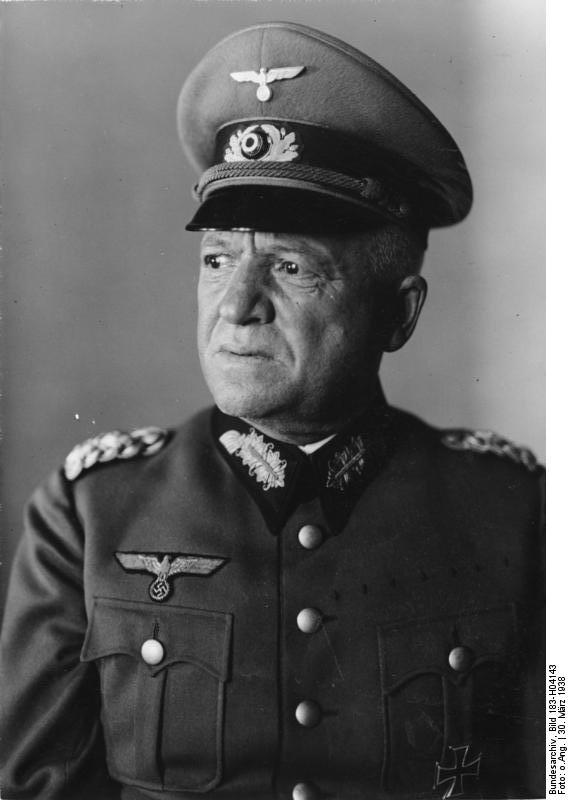
1877 Birth: Wilhelm Adam: in Anspach, Bavaria. Will serve as a Bavarian officer in World War I with a reputation for efficiency; become a Major General in 1930; in 1933 become commander of the Munich military area; in 1935 assume command of Berlin's new Armed Forces Academy. Not one of Hitler's favorites, the two will clash over West Wall fortifications and other disputes. Following a few months after the fall of Blomberg and Fritsch, Adam will be relieved of command by Hitler and sit out the war in Garmisch, where he will pass away on April 8, 1949.
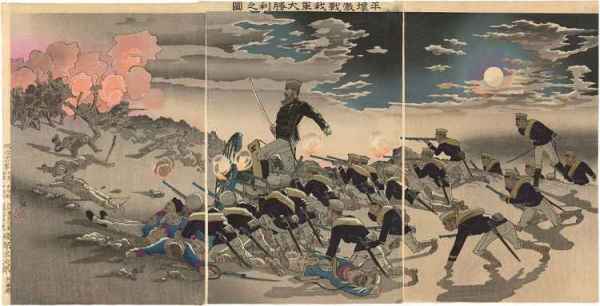
1894 First Sino-Japanese War: The Imperial Japanese Army lays siege to Pyongyang, eventually defeating the Chinese by an attack from the rear. When the Chinese finally surrender (on September 16, 1894), total casualties are: 2000 killed and around 4000 wounded for the Chinese, 102 men killed and 433 wounded for the Japanese. (Connaughton, Sedwick)
1897 Birth: Kurt Daluege: Commander-in-Chief of the Police of the German Reich and later Deputy Protector of Bohemia and Moravia. Daluege joins the NSDAP in 1922 and in March 1926 founds and leads the first SA group in Berlin and North Germany, a position he holds until 1928, when he transfers to the SS. For the next five years he is Commander of SS units in East Germany, organizing special shock battalions for surprise attacks on opponents. After Hitler comes to power in 1933, he is given the special assignment of purging the police apparatus of Hitler's opponents, and will be largely responsible for turning the police into an instrument of the Nazi regime. Promoted to SS General in 1934, he subsequently becomes the most powerful policeman in the SS, second in rank only to Himmler. After Heydrich's death, he becomes Deputy Protector of Bohemia and Moravia in 1942, and is said to have been responsible for the destruction of the village of Lidice. He will be executed by the Czechs in October 1946.
1901 Birth: Sir Howard Bailey:

1907 (Exact Date Unknown)
: A wholly self-confident (he tell us) Adolf Hitler travels to Vienna to fill out his forms and prepare for the October entrance examination at the Academy of Fine Arts. His Aunt Johanna loans him the considerable sum of 924 Kronen, enough to keep him going in Vienna for a year, if used frugally. He rents a room at 29 Stumpergasse, Vienna from an elderly Czech woman, Maria Zakreys, for 5 kronen a month. He is only a few blocks away from the Westbahnhof railway station, which serves Linz (only two hours away). [For further details, Click here.]From Mein Kampf:In the last months of [my mother's] sickness, I had gone to Vienna to take the entrance examination for the Academy. I had set out with a pile of drawings, convinced that it would be child's play to pass the examination. At the Realschule I had been by far the best in my class at drawing, and since then my ability had developed amazingly; my own satisfaction caused me to take a joyful pride in hoping for the best.
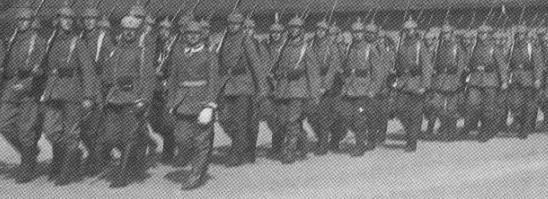
List Regiment
(Sep 1-Oct 7): Infantry Recruit Adolf Hitler's regiment continues a short but intensive basic training program, which is held in the premises of a large public school on the Elizabeth Platz in Munich. Hitler receives the first uniform of his life; basic greenish-grey with an "RIR 16" sown in red unto the epaulettes and a red stripe down the side of the trousers. The trousers are tucked into new leather boots, topped by a thick leather belt around the waist of the uniform jacket. [For further details, Click here.]First trenches are dug on the Western Front:
In the wake of the Battle of the Marne, during which Allied troops halted the steady German push through Belgium and France that had proceeded over the first month of World War I, a conflict both sides had expected to be short and decisive turns longer and bloodier, as Allied and German forces begin digging the first trenches on the Western Front on September 15, 1914.
The trench system on the Western Front in World War I-fixed from the winter of 1914 to the spring of 1918-eventually stretched from the North Sea coast of Belgium southward through France, with a bulge outwards to contain the much-contested Ypres salient . . . . the system finally reached its southernmost point in Alsace, at the Swiss border. In total the trenches built during World War I, laid end-to-end, would stretch some 25,000 miles: 12,000 of those miles occupied by the Allies, and the rest by the Central Powers.
As historian Paul Fussell describes it, there were usually three lines of trenches: a front-line trench located 50 yards to a mile from its enemy counterpart, guarded by tangled lines of barbed wire; a support trench line several hundred yards back; and a reserve line several hundred yards behind that. A well-built trench did not run straight for any distance, as that would invite the danger of enfilade, or sweeping fire, along a long stretch of the line; instead it zigzagged every few yards. There were three different types of trenches: firing trenches, lined on the side facing the enemy by steps where defending soldiers would stand to fire machine guns and throw grenades at the advancing offense; communication trenches; and "saps," shallower positions that extended into no-man's-land and afforded spots for observation posts, grenade-throwing and machine gun-firing.
While war in the trenches during World War I is described in horrific, apocalyptic terms: the mud, the stench of rotting bodies, the enormous rats; the reality was that the trench system protected the soldiers to a large extent from the worst effects of modern firepower, used for the first time during that conflict. The greatest danger came during the periods when the war became more mobile, when the soldiers on either side left the trenches to go on the offensive. German losses per month peaked when they went on the attack: in 1914 in Belgium and France, 1915 on the Eastern Front, and 1918 again in the west; for the French, casualties peaked in September 1914, when they risked everything to halt the German advance at the Marne. Trench warfare redefined battle in the modern age, making artillery into the key weapon. Thus the fundamental challenge on both sides of the line became how to produce enough munitions, keep the troops supplied with these munitions, and expend enough of them during an offensive to sufficiently damage the enemy lines, before beginning an infantry advance.
Russian Front: The German victory at the Masurian Lakes effectively knocks out the Russians as an important consideration in Allied strategy. (THP)
Masurian Lakes was the second defeat for the Russian Army in World War One at the hands of the German army - the previous month had seen the destruction of the Russian Second Army at the Battle of Tannenburg. Just as Ludendorff and Hindenburg had seen off Samsonov at Tannenburg, they wanted the second part of what had been intended as a Russian pincer movement in East Prussia defeated - Rennenkampf's Russian First Army. With Samsonov's Second Army defeated, Rennenkampf was in a much weaker position.

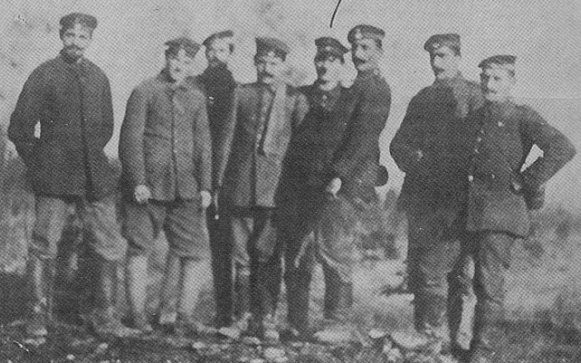
Hitler and his fellow dispatch runners
List Regiment:
Gefreiter Adolf Hitler endures trench warfare in Flanders (Artois) with 3 Company, 16 Reserve Infantry Regiment [List Regiment]. [For further details, Click here.]Tanks introduced into warfare:
During the Battle of the Somme, the British launch a major offensive against the Germans, employing tanks for the first time in history. At Flers Courcelette, some of the 40 or so primitive tanks advanced over a mile into enemy lines but were too slow to hold their positions during the German counterattack and subject to mechanical breakdown. However, General Douglas Haig, commander of Allied forces at the Somme, saw the promise of this new instrument of war and ordered the war department to produce hundreds more. [For further details, Click here]
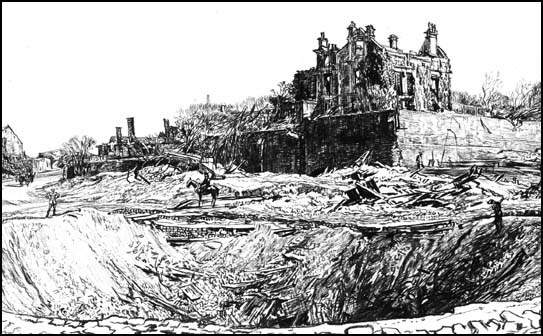
1917 Russia:
Alexander Kerensky proclaims a republic.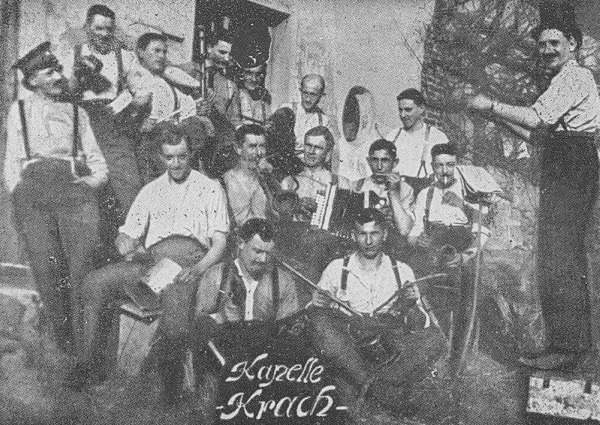
List Regiment
(August 21-September 27): Gefreiter Adolf Hitler attends a signals training course in Nuremberg. [For further details, Click here.]Baku
is taken by Turkish troops and Azerbaijani nationalists. 30,000 civilians are massacred.1919 Volkishness: Brockhusen writes another letter to Heimerdinger revealing a deep dismay at postwar conditions and a hatred for the Poles. Brockhausen it seems had kept his office as Grand Master of the loyalist Germanenorden. (THP)
1923 Ku Klux Klan: The entire state of Oklahoma is placed under martial law by Governor John Calloway Walton due to terrorist activity by the Ku Klux Klan. After this declaration national newspapers begin to expose the Klan and its criminal activities.
1930 Weimar: Hitler testifies before the Supreme Court of Leipzig during the trial of Reichswehr officers Scheringer, Ludin and Wendt. He pledges that his party will respect legality. (See Oct 4) (Maser)
The National Socialist movement will seek to reach its goals through legal means. The law provides the means, but not the goal. We will seek to gain a decisive majority in the lawmaking bodies, and at the moment in which we succeed we will give the state a form corresponding to our ideas.
1933 Austria: Chancellor Dollfuss addressing the Austrian Fatherland Front, proposes a "Christian German State on Fascist lines," but without discrimination against Jews. 1935 Various:
Holocaust: Nuremberg race laws imposed:
On this day in 1935, German Jews are stripped of their citizenship, reducing them to mere "subjects" of the state.
After Hitler's accession to the offices of president and chancellor of Germany, he set about the task of remaking his adopted country (Hitler had to pull some strings even to be eligible for office, as he was Austrian by birth) into the dream state he imagined. But his dream was soon to become a nightmare for many. Early on in his reign, the lives of non-Jewish German citizens were barely disrupted. But not so for Hitler's "enemies." Hitler's racist ideology, which elevated those of "pure-blooded" German stock to the level of "masters" of the earth, began working itself out in vicious ways.
Within the first year of Hitler's rule, German Jews were excluded from a host of high-profile vocations, from public office to journalism, radio, theater, film, and teaching-even farming. The professions of law and medicine were also withdrawn slowly as opportunities. "Jews Not Welcome" signs could be seen on shop and hotel windows, beer gardens, and other public arenas. With the Nuremberg Laws, these discriminatory acts became embedded in the culture by fiat, making them even more far-reaching. Jews were forbidden to marry "Aryans" or engage in extramarital relations with them. Jews could not employ female Aryan servants if they were less than 35 years of age. Jews found it difficult even to buy food, as groceries, bakeries, and dairies would not admit Jewish customers. Even pharmacies refused to sell them medicines or drugs.
What was the outside world's reaction? Because unemployment had dropped precipitously under Hitler's early commandeering of the economy, and the average German felt renewed hope and pride, the face of Germany seemed brighter, more at peace with itself. While some foreign visitors, even some political opponents within Germany itself, decried these racist laws and practices, most were beguiled into thinking it was merely a phase, and that Hitler, in the words of former British Prime Minister Lloyd George, was "a great man." (History.com)
The swastika becomes part of the official flag of the Third Reich. (THP)
Hitler: 1936 Press Reaction to Hitler's September 14 Speech:
As the gathering force of anti-bolshevist invective here had suggested, Herr Hitler's closing speech at the Party Congress tonight was an appeal and a warning to Europe against the bolshevist menace in extremely violent terms . . . . .The nearest Herr Hitler came to this point tonight was when he declared passionately that National Socialist Germany could not enter into any kind of bargain with the bolshevist outlook; they could not negotiate with bolshevism. Rhetorically, to judge by the rousing response, the speech was a fitting climax; what it was diplomatically will become clearer through the course of events. — The Times (London)
1938 Sudeten Crises: 1939 World War II: Various:
Reich Foreign Minister Joachim von Ribbentrop to the German Ambassador in the Soviet Union Schulenburg:
For the Ambassador personally. I request that you communicate the following to Herr Molotov at once:
The Polish submarine Orzel arrives in Tallinn, Estonia after escaping the German invasion of Poland; her crew itching to fight Nazis:
On September 1, 1939 all five Polish submarines were in the Baltic. The Polish Submarine Division was the main offensive weapon of the Polish navy. Under the command of Kdr. Ppor. Aleksander Mohuczy the submarines had been at full combat readiness since August 24. The boats were used defensively, operating near Polish ports and offensive operations were hamstrung due to political considerations, as the western powers asked the Poles to refrain from provocative acts. For five days the Polish boats were attacked by German aircraft and twice by German U-Boats, near their ports. It was two days after the declaration of war by France and Britain against Germany that the submarines were given orders for offensive operations in the Baltic. On September 5 all five boats were ordered to the northern Baltic to get respite from the German attacks and to repair the damages sustained while they had been passive targets outside of the Polish ports. On the 7th new orders came in and each boat was assigned a 60-mile sector from the German coast to the Swedish coast in interdict German shipping. The operation had no success as the boats were limited by their damage and there was a lack of German targets.
Gdynia is captured by German forces.
Kutno pocket: Polish breakout attempts are unsuccessful.
Jehovah's Witness August Dickman a conscientious objector, is executed by firing squad at the Sachsenhausen concentration camp. (THP)
1940 World War II: Tide turns in the Battle of Britain:
The Battle of Britain reaches its climax when the Royal Air Force (RAF) downs 56 invading German aircraft in two dogfights lasting less than an hour. The costly raid convinced the German high command that the Luftwaffe could not achieve air supremacy over Britain, and the next day daylight attacks were replaced with nighttime sorties as a concession of defeat. On September 19, Nazi leader Adolf Hitler postponed indefinitely "Operation Sea Lion"—the amphibious invasion of Britain. Although heavy German air raids on London and other British cities would continue through spring 1941, the Battle of Britain was effectively won. [For further details, Click here] By denying the Germans a quick victory, depriving them of forces to be used in their invasion of the USSR, and proving to America that increased arms support for Britain was not in vain, the outcome of the Battle of Britain greatly changed the course of World War II. As Churchill said of the RAF fliers during the Battle of Britain, "Never in the field of human conflict was so much owed by so many to so few."
1941 World War II: War at Sea: The US Navy begins to take over the convoying of British ships as far as Iceland, seen by the German government as a breach of neutrality. The US Attorney General rules that the Neutrality Act is not violated when US ships carry war materiel to British territories, opening the door for the Lend-Lease Act. 1942 Various:
Holocaust: From today's Vienna edition of the Voelkischer Beobachter:
Baldur von Schirach: Every Jew who exerts influence in Europe is a danger to European culture. If anyone reproaches me with having driven from this city, which was once the European metropolis of Jewry, tens of thousands upon tens of thousands of Jews into the ghetto of the East, I feel myself compelled to reply, 'I see in this an action contributing to European culture."
Holocaust: Polish-born Jews are deported from Lille, France, to Auschwitz. (THP)
World War II: War in the Pacific: The US aircraft carrier USS Wasp is torpedoed at Guadalcanal.
World War II: Barbarossa: Fierce fighting between German and Soviet forces for possession of Mamayev Kurgan, the strategic hill overlooking Stalingrad.
1943 World War II: Italy: After six days of savage, armored attacks, General Clark's forces break out of Salerno.
1944 Various:
USSR:
France: The US First Army (Hodges) occupies Nancy.
Quebec Conference: At the Quebec summit conference between Roosevelt and Churchill, the Treasury Plan for the Treatment of Germany, known as the Morgenthau Plan, is adopted. Its three main points are:
1) Germany is to be partitioned into a number of independent states (map above).
Nuremberg Tribunal: Colonel Murray Bernays, of the US War Department's Special Project Branch, proposes part of the framework that will be used in Nuremburg. Bernays proposes treating the Nazi regime as a criminal plot. William Chanler, a friend of Secretary of War Stinson, suggests another part of the framework: making the waging of a war of aggression a crime.
War against Japan: American and Australian forces landed on the Japanese-occupied island of Morotai, starting the Battle of Morotai.
1946 Nuremberg Tribunal 1948 Wunderwaffen: Army Ordnance submits a proposal to the Department of Defense's Committee on Guided Missiles for a feasibility study on satellites based on Werner von Braun's work. Note: Werner von Braun is Hitler's former chief rocket scientist who is now working for the US. 1950 Korean War: U.S. forces land at Inchon:
During the Korean War, U.S. Marines land at Inchon on the west coast of Korea, 100 miles south of the 38th parallel and just 25 miles from Seoul. The location had been criticized as too risky, but U.N. Supreme Commander Douglas MacArthur insisted . . . . By the early evening, the Marines had overcome moderate resistance and secured Inchon. The brilliant landing cut the North Korean forces in two, and the U.S.-led U.N. force pushed inland to recapture Seoul, the South Korean capital that had fallen to the communists in June. Allied forces then converged from the north and the south, devastating the North Korean army and taking 125,000 enemy troops prisoner.
The Korean War began on June 25, 1950, when 90,000 North Korean troops stormed across the 38th parallel, catching the Republic of Korea's forces completely off guard and throwing them into a hasty southern retreat. Two days later, U.S. President Harry Truman announced that the United States would intervene in the conflict, and on June 28 the United Nations approved the use of force against communist North Korea. On June 30, Truman agreed to send U.S. ground forces to Korea, and on July 7 the Security Council recommended that all U.N. forces sent to Korea be put under U.S. command. The next day, General Douglas MacArthur was named commander of all U.N. forces in Korea. Spandau Prison: From Spandau: The Secret Diaries, by Albert Speer: Yesterday Funk was transferred to the British military hospital to undergo an operation. This is the first time one of us has been outside the walls. Four British jeeps filled with MP's accompanied the ambulance. The four directors of Spandau, the heads of legal departments, and other representatives of the Four Powers followed by car. Since each one had his own car, the column was almost a kilometer long, as one of the guards described it. Quite a bit of fuss for one old man. At the hospital a stretcher was waiting. Four strong men took hold of it and carried it on the double up one flight of stairs; Funk was in his room before he could look about him. "If they had given Funk twenty-five pfennigs for the streetcar, he would have arrived on his own," Long commented dryly. Werner von Braun writes a secret report for Project Orbiter, entitled A Minimum Satellite Vehicle Based on Components Available from Developments of the Army Ordnance Corps. The report reveals that, von Braun is becoming expert at utilizing both technical and political arguments, and estimates a total cost of $100,000. An excerpt: The establishment of a man-made satellite, no matter how humble, would be a scientific achievement of tremendous impact. Since it is a project that could be realized within a few years with [the] rockets and guided missile experience available now, it is only logical to assume that other countries could do the same. It would be a blow to the US prestige if we did not do it first. 1959 Khrushchev arrives in Washington: "Nikita Khrushchev becomes the first Soviet head of state to visit the United States. During the next two weeks, Khrushchev's visit dominated the news and provided some dramatic and humorous moments in the history of the Cold War." [For further details, Click here.]
1978 Death: Willy Messerschmitt: German aircraft designer and manufacturer. He was born in Frankfurt am Main, the son of a wine merchant. His stepfather was the American artist and Munich Academy Professor Carl von Marr. Probably Messerschmitt's single most important design was the Messerschmitt Bf 109, designed in 1934 with the collaboration of Walter Rethel. The Bf 109 became the most important fighter in the Luftwaffe as Germany re-armed prior to World War II. To this day, it remains the most-produced fighter in history, with some 35,000 built. Another Messerschmitt aircraft, first called Me 109R but later re-designated Messerschmitt Bf 209, broke the absolute world air-speed record and held the world speed record for propeller-driven aircraft for several decades. His firm also produced the first jet-powered fighter to enter service the Messerschmitt Me 262, although Messerschmitt himself did not design it.
Edited by Levi Bookin (Copy editor) Click to join 3rdReichStudies Disclaimer: This site includes diverse and controversial materials—such as excerpts from the writings of racists and anti-Semites—so that its readers can learn the nature and extent of hate and anti-Semitic discourse. It is our sincere belief that only the informed citizen can prevail over the ignorance of Racialist "thought." Far from approving these writings, this site condemns racism in all of its forms and manifestations. 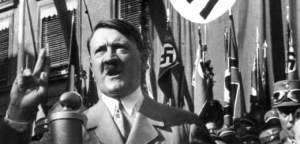
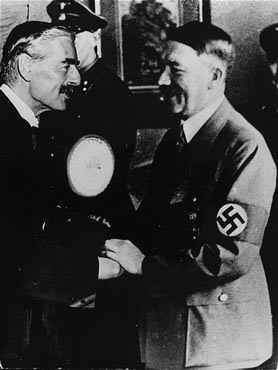

1) The destruction of the Polish Army is rapidly approaching its conclusion, as appears from the review of the military situation of September 14 which has already been communicated to you. We count on the occupation of Warsaw in the next few days.
2) We have already stated to the Soviet Government that we consider ourselves bound by the definition of spheres of influence agreed upon in Moscow, entirely apart from purely military operations, and the same applies of course to the future as well.
3) From the communication made to you by Molotov on September 14, we assume that the Soviet Government will take a hand militarily, and that it intends to begin its operation now. We welcome this. The Soviet Government thus relieves us of the necessity of annihilating the remainder of the Polish Army by pursuing it as far as the Russian boundary. Also the question is disposed of in case a Russian intervention did not take place, of whether in the area lying to the east of the German zone of influence a political vacuum might not occur. Since we on our part have no intention of undertaking any political or administrative activities in these areas, apart from what is made necessary by military operations, without such an intervention on the part of the Soviet Government there might be the possibility of the construction of new states there.
4) For the political support of the advance of the Soviet Army we propose the publication of a joint communique of the following content: "In view of the complete collapse of the previous form of government in Poland, the Reich Government and the Government of the U.S.S.R. consider it necessary to bring to an end the intolerable political and economic conditions existing in these territories. They regard it as their joint duty to restore peace and order in these areas which are naturally of interest to them and to bring about a new order by the creation of natural frontiers and viable economic organizations."
5) We assume in proposing such a communique that the Soviet Government has already given up the idea, expressed by Molotov in an earlier conversation with you, of taking the threat to the Ukrainian and White Russian populations by Germany as a ground for Soviet action. The assignment of a motive of that sort would be out of the question in practice. It would be directly contrary to the true German intentions, which are confined exclusively to the realization of well-known German spheres of interest. It would also be in contradiction to the arrangements made in Moscow and, finally, would-in opposition to the desire for friendly relations expressed on both sides expose the two States before the whole world as enemies.
6) Since the military operations must be concluded as soon as possible because of the advanced season of the year, we would be gratified if the Soviet Government would set a day and hour on which their army would begin their advance, so that we on our part might govern ourselves accordingly. For the purpose of the necessary coordination of military operations on either side, it is also necessary that a representative of each Government, as well as German and Russian officers on the spot in the area of operations, should have a meeting in order to take the necessary steps, for which meeting we propose to assemble at Bialystok by air. I request an immediate reply by telegraph. The change in text agreed upon by Gaus with Hilger has already been taken care of.
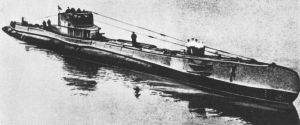
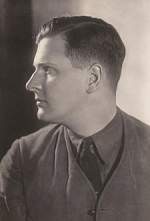
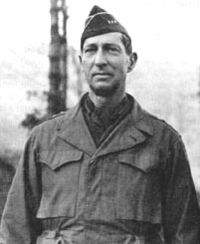

2) Germany's main centers of mining and industry, including the Saar area, the Ruhr area and Upper Silesia are to be internationalized or annexed by neighboring nations.
3) All heavy industry is to be dismantled or otherwise destroyed. 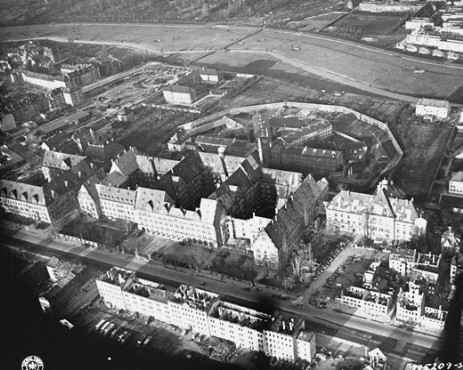
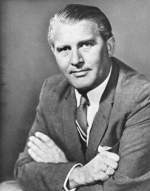
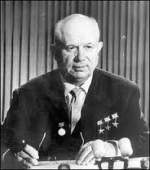
levi.bookin@gmail.com










Fair Use Notice: This site may contain copyrighted material the use of which has not always been specifically authorized by the copyright owner. We are making such material available in our efforts to advance understanding of historical, political, human rights, economic, democracy, scientific, environmental, and social justice issues, etc. We believe this constitutes a "fair use" of any such copyrighted material as provided for in section 107 of the US Copyright Law. In accordance with Title 17 U.S.C. Section 107, the material on this site is distributed without profit to those who have expressed a prior interest in receiving the included information for research and educational purposes. If you wish to use copyrighted material from this site for purposes of your own that go beyond 'fair use', you must obtain permission from the copyright owner.
Please Note: The list-owner and moderators of 3rdReichStudies are not responsible for, and do not necessarily approve of, the random ads placed on our pages by our web server. They are, unfortunately, the price one pays for a 'free' website.



